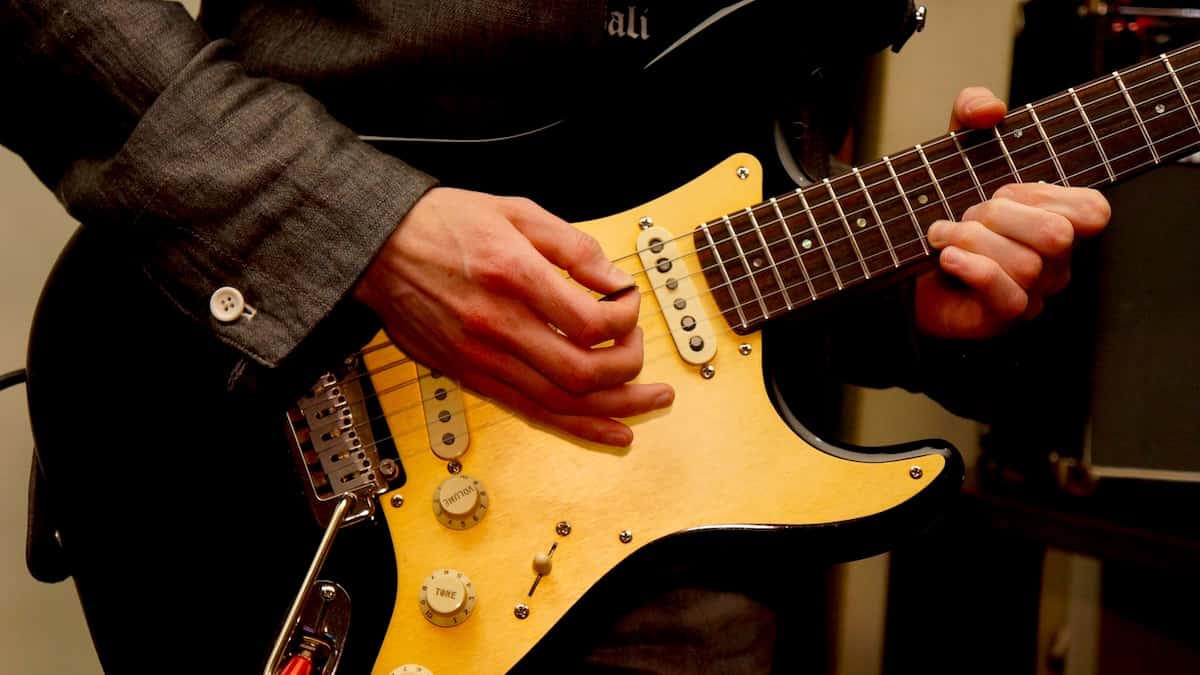Jazz Guitar Lessons
Using A Dominant Substitution for Solos

Jazz improvisation on Dominant 7th chords – Guitarist Chuck Anderson provides an interesting approach to create new tensions in your solo.
The most obvious scale used to solo over Dominant 7th chords is the Mixolydian or Dominant scale. This scale is a major scale with a flatted 7th. This scale handles all chord tones in a Dominant 7th chord as well as the upper partials 9, 11, and 13. This scale produces a very consonant sound but lacks the interest of tension. A great way to introduce tensions is to use a substitute chord for the Dominant 7th and then, use a scale appropriate to this substitute.
A famous substitute for a Dominant 7th is the Tritone substitute. This is a 7th chord whose root is 3 whole steps from the root of the Dominant 7th chord. For example, assuming the chord is G7, the tritone substitute would be Db7.
Try using a Db7 type scale when you solo on the G7 chord. A common scale used in jazz for the Tritone chord is a Mixolydian #4 also known as a Lydian Dominant. In Db, this scale would be Db Eb F G Ab Bb Cb Db.
When this scale is superimposed on the Dominant G7 chord, you get the chord tones of G, B, and F. You also get the tensions or alterations of the b5, #5, b9, #9, #11, and b13.
Try this out and you’ll notice how your solo takes on a more progressive, modern jazz sound.
Check out Chuck’s Store with books and music
More Lessons from Chuck Anderson –
What You Need To Know About Diminished Scale Fingerings and Chord Application
Helpful Tips With Symmetric Whole Tone Scale Fingering
Learn More About Double Third Chord Voicings for Guitar
Subscribe to Jazz Guitar Today – it’s FREE!
-
Jazz Guitar Lessons2 weeks ago
New JGT Guitar Lesson: Analyzing “Without A Song”
-
Jazz Guitar Lessons4 weeks ago
New JGT Guitar Lesson: Considering “Falling Grace”
-
Artist Features1 week ago
New Kurt Rosenwinkel JGT Video Podcast – July 2024
-
Artist Features3 weeks ago
JGT Talks To Seattle’s Michael Eskenazi



















